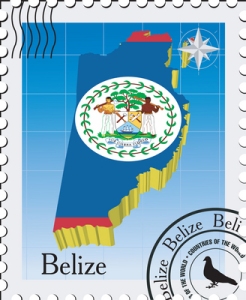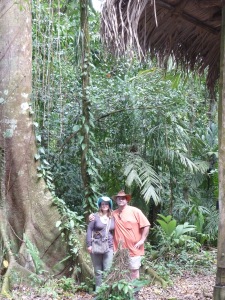 Belize finally escaped British colonization 31 years ago and became independent on September 21, 1981. The “new” nation had earned its name (a change from British Honduras) in 1973, but its freedom would take a bit longer, tangled as it was in Central American politics (most notably, Guatemala’s claim for a chunk of Belize) and foreign (U.S.) intervention in the region. U.S. Secretary of State Hillary Clinton, in what surely was a much-needed light moment in this month of Arab turmoil, issued her good wishes on Wednesday:
Belize finally escaped British colonization 31 years ago and became independent on September 21, 1981. The “new” nation had earned its name (a change from British Honduras) in 1973, but its freedom would take a bit longer, tangled as it was in Central American politics (most notably, Guatemala’s claim for a chunk of Belize) and foreign (U.S.) intervention in the region. U.S. Secretary of State Hillary Clinton, in what surely was a much-needed light moment in this month of Arab turmoil, issued her good wishes on Wednesday:
[A]ll Belizeans can rejoice in your nation’s great diversity of cultures, ethnicities, and languages and your proud heritage as a vibrant democracy situated at the crossroads of Latin America and the Caribbean. The ties between our two countries pre-date Belizean independence — the 50th anniversary this year of the Peace Corps’ presence in Belize offers us the opportunity to renew our longstanding commitment to community development, education, and youth empowerment. Together, we are working to promote citizen security, expand trade and economic growth, and build more opportunities for all people.
It’s interesting to me that slavery was abolished in Belize long before it was in the United States, yet it remained a British colony for long after. I learned about the basics of Belizean history from a book geared toward elementary school students, A History of Belize: Nation in the making, edited by Robert Leslie. For slightly more depth, I turned to Understanding Belize: A Historical Guide by Alan Twigg. I learned about how politics really work in the country by reading Bruce Barcott’s Last Flight of the Scarlet Macaw, which covered the efforts of the owner of the Belize Zoo to block construction of a dam that would disturb the macaws’ habitat. To understand daily life, at least from the perspective of a relocated American, I turned to Nancy Koerner’s Belize Survivor: Darker Side of Paradise. The main character, stuck in an abusive marriage, just happens to be living in Belize.

Of course, nothing makes the history of Belize more comprehensible than a visit and interaction with the locals and observation of the ex-pats, the Maya, the rastas, the missionaries. I hope to go back soon to learn more.

© Lori Tripoli


